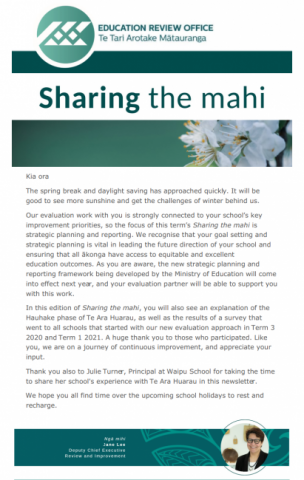
Kia ora
The spring break and daylight saving has approached quickly. It will be good to see more sunshine and get the challenges of winter behind us.
Our evaluation work with you is strongly connected to your school’s key improvement priorities, so the focus of this term’s Sharing the mahi is strategic planning and reporting. We recognise that your goal setting and strategic planning is vital in leading the future direction of your school and ensuring that all ākonga have access to equitable and excellent education outcomes. As you are aware, the new strategic planning and reporting framework being developed by the Ministry of Education will come into effect next year, and your evaluation partner will be able to support you with this work.
In this edition of Sharing the mahi, you will also see an explanation of the Hauhake phase of Te Ara Huarau, as well as the results of a survey that went to all schools that started with our new evaluation approach in Term 3 2020 and Term 1 2021. A huge thank you to those who participated. Like you, we are on a journey of continuous improvement, and appreciate your input.
Thank you also to Julie Turner, Principal at Waipu School for taking the time to share her school's experience with Te Ara Huarau in this newsletter.
We hope you all find time over the upcoming school holidays to rest and recharge.

Strategic Planning and Reporting
The Education and Training Act 2020 introduces a new planning and reporting framework for all state and state integrated schools and kura from 1 January 2023. In place of an annual charter, schools and kura will be required to have a three-year strategic plan and an annual implementation plan.
The Ministry of Education is working towards implementing regulations that will specify the content and commencement date of strategic plans by mid-2023. Then, school boards will be required to publish their first strategic plans by 1 January 2024. School and kura 2022 charters will be deemed the first strategic plan in 2023.
ERO’s evaluation partners will continue to provide tailored evaluation support to schools as you consider evidence, develop strategic priorities, plan forward, take action and report outcomes as part of your ongoing improvement journey. Each school’s strategic goals for improving outcomes for learners are included in a one-off Profile Report. Evaluation partners are conscious that every school and community is different and are mindful of each unique context as we collaborate to achieve excellence and equitable outcomes for all learners.
More about Te Ara Huarau
Introducing the first of three phases that make up Te Ara Huarau – ERO's approach to evaluation in English-medium state and state integrated schools.
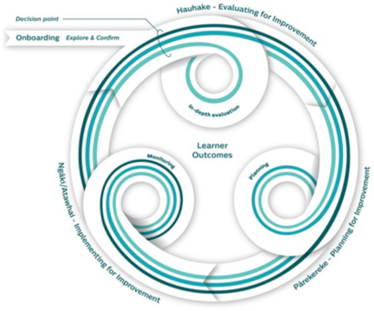
Hauhake - Evaluating for improvement
Hauhake requires the school community including whānau, iwi, school, learners and ERO to:

ERO works alongside the school to support evaluation for improvement.
We will explore phases 2 and 3 in future Sharing the mahi newsletters, or you can access this information on our website.
Milestones
Despite the Covid-related challenges over the past few years, as of 19 September 2022 we have notified 1,522 schools about their involvement with ERO and are actively engaging with 1,336 schools in Te Ara Huarau. We are planning to have all English-medium state and state integrated schools on board in 2023.
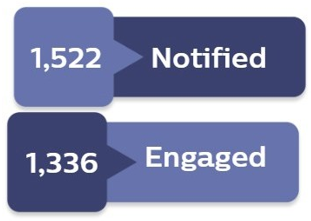
Leader’s spotlight

We asked Julie Turner, Principal of Waipu School about her school’s experience with Te Ara Huarau ...
How is your Review Officer (acting as Evaluation Partner) helping or enhancing your key priorities for improvement?
I have been working with my evaluation partner for just under two years but with the intervention of Covid, much of our work together stalled until earlier this year, when we were once again able to continue our process and progress.
Most recently we have completed Te Ara Huarau – The School Improvement Framework. By working through this framework, I was able to both confirm my hunches about areas in the curriculum delivery that needed strengthening and to recognise those areas in which we already support learners well but identifying what our next steps could be to continue to build upon that.
Can you tell us about ERO’s evaluation approach and how it is supporting your strategic and annual planning process?
The new approach is very different in that it enables the principal to build more of an ongoing relationship with the evaluation partner. By working together in this partnership, there is an accountability component that hasn’t been evident in the past, as three or more years could elapse before ERO would revisit the school. So, improving our practice is ongoing and this must have positive outcomes for our learners. Also, the evaluation partner is in a very good position to support and advise as they have been exposed to a wide range of educational institutions, each with different systems, models, and ways of working. They are now more able to share the knowledge that they have gleaned when visiting other schools.
When you compare EROs new approach to the former event-based external reviews, how is this new approach supporting your school to improve learner outcomes?
Using the framework provided by my evaluation partner, I was able to identify areas within the ‘Effective Teaching’ part of the framework that I felt needed to become a focus. My next step is to use this framework with my senior management team and teaching staff to further clarify and confirm (or otherwise) my own assumptions. This exercise will also promote robust conversations and help to unpack what each of these descriptors might look like in practice.
So once everyone has contributed to that discussion, we will be able to include the identified key areas into the strategic and annual planning for 2023.
We asked, you responded!
In June, we surveyed the schools who were onboarded to Te Ara Huarau in its earlier stages. We asked for feedback on a range of questions, including what impact the new approach is having from a schools’ perspective, and how this is supporting schools’ strategic planning.
The survey had 117 responses, and here we share some of the key findings in relation to strategic planning.
Alignment of the approach with our school's strategic direction: you scored us 4.40 out of 5.
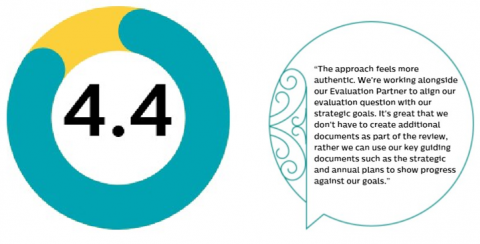
Through the evaluation approach we have identified and/or enhanced our school's strategic priorities: 73% agree
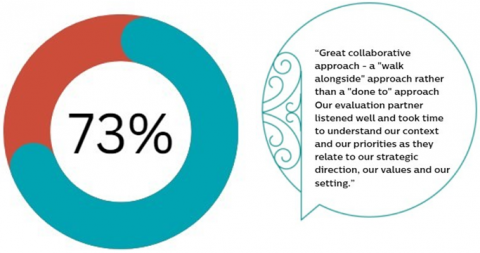
You can see we are on an improvement journey also. We were particularly pleased to see that the three highest results were:
Openness of communication with ERO: you scored us
4.65 out of 5.
Ease of working with our evaluation partner: you scored us
4.56 out of 5
Opportunity for our school to collaborate with ERO in the evaluation process: you scored us 4.43 out of 5.
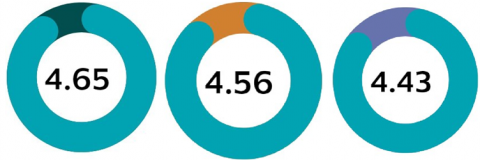
The next edition of Sharing the mahi will look at the tools that are available to support your school's evaluation process.
For more information about ERO and our mahi please visit ero.govt.nz
To be added to our mailing list for Sharing the mahi, please email us at ricomms@ero.govt.nz